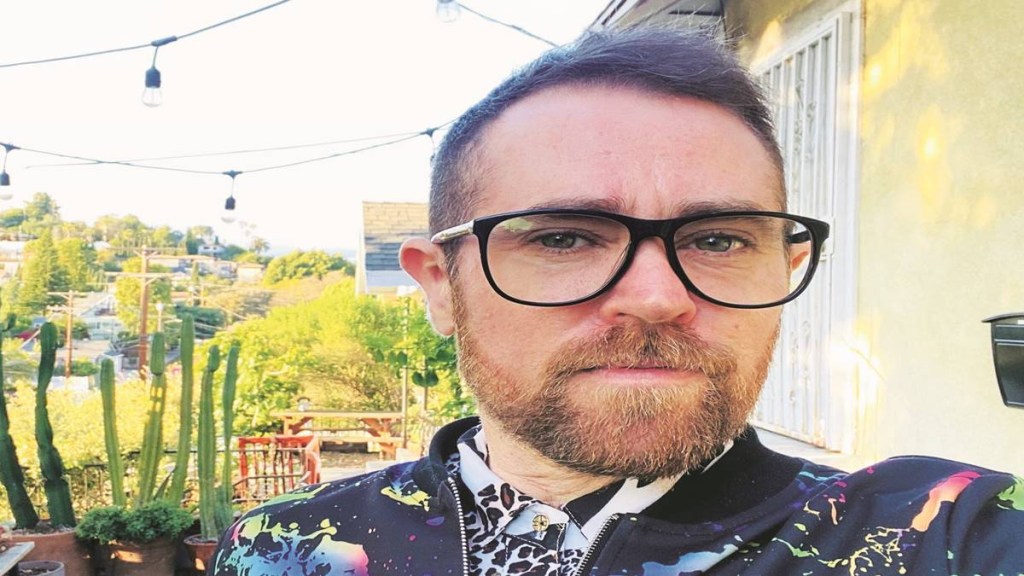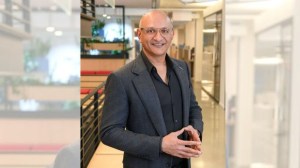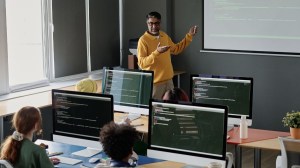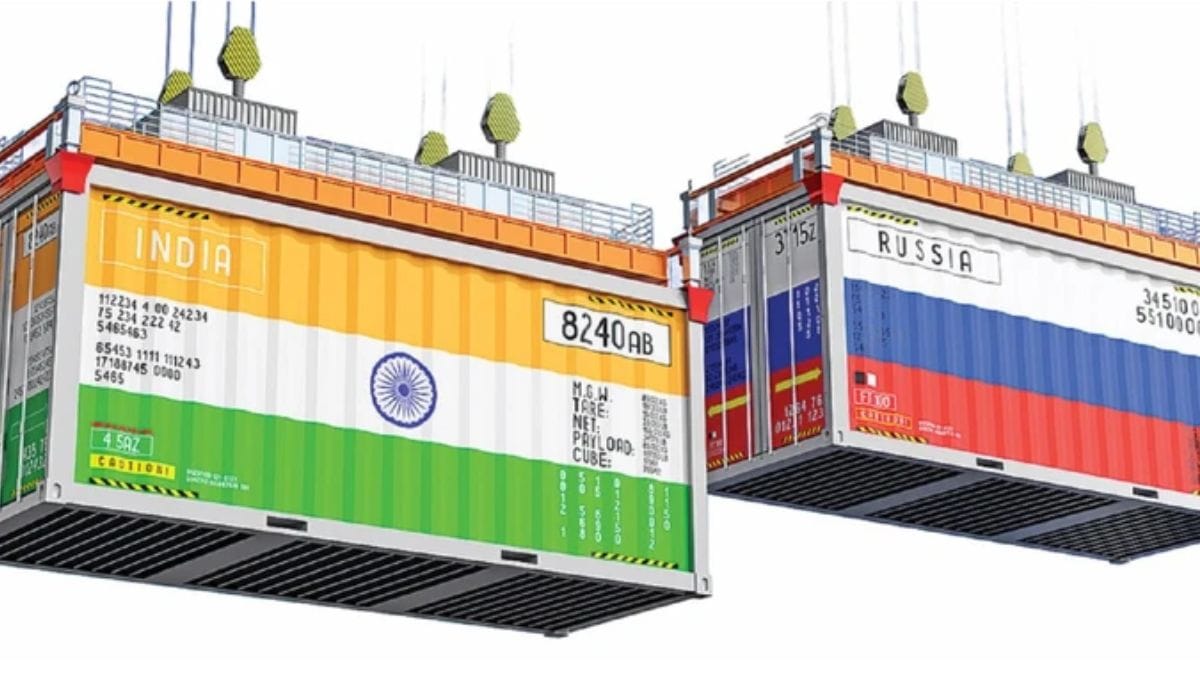A theatrical podcast turned heads at the recently-concluded Serendipity Arts Festival in Goa. Titled Climate Change and Other Small Talk, the podcast was aimed at using nine audio dramas from around the world, including one from India written by Bengaluru-based Ram Ganesh Kamatham, to entertain and explore the climate crisis. Canadian playwright Sunny Drake, the creator of the theatrical podcast, wanted to shake the conscience of humans, the primary perpetrator of the environmental catastrophe, with humour. One of the dramas shows a new, proud owner of an oceanfront villa facing a fall into the sea while another is about a submarine tracking an enemy target, climate change in this case, for a lethal strike.
Drake, who divides his time between Los Angeles and Toronto, has written and produced award-winning plays that have been presented in over 60 cities across the world and translated into four languages. His wide range of audiences has spanned international arts festivals, queers in underground warehouses and seniors in regional theatres. Drake, a trans person, was selected to write the 2019 World Theatre Day message for Canada. He was awarded the inaugural Johanna Metcalf Performing Arts Prize 2019 for having a significant impact on performing arts in the Canadian province of Ontario, which has a significant Indian immigrant population.
In 2022, his comedy, Every Little Nookie, premiered at the Stratford Festival, Canada’s largest theatre event, and won a national Canadian comedy award. In December 2023, his large-scale multi-award-winning audio drama project, Climate Change and Other Small Talk: Listening Party curated by Mumbai-based playwright Quasar Thakore Padamsee was a major highlight of the eighth edition of the Serendipity Arts Festival. Drake talks to Faizal Khan about the making of Climate Change and Other Small Talk project.
What was the point of departure of Climate Change and Other Small Talk?
In 2019, I did a three-week residency on a tall ship in the high Arctic, north of Scandinavia, with 30 artists and scientists. We visited the world’s most northern climate research station, where scientists do all their science stuff. You know, look smart in their laboratory coats and do impressive calculations and release daily weather balloons. This gives them important local information. Although to understand climate change, we need both this really local information and also the global. They combine their data with a network of hundreds of other weather stations with other smart science people in equally cool laboratory coats.
So I thought, let’s do the same thing with artists. I invited nine teams of artists across the world to each create local audio dramas which are then funneled into a global podcast series and live events. While the scientists investigate all that science stuff, our artists are investigating all the human stuff: the stories that shape how we’ve gotten into this climate mess and some different stories to help us out. The reality is: stories matter as much as facts. Of course, we need the facts from the scientists otherwise we might just be like ‘wow, it’s kind of hot and stormy these last few decades’. But facts don’t change culture and our ways of living. Stories do.
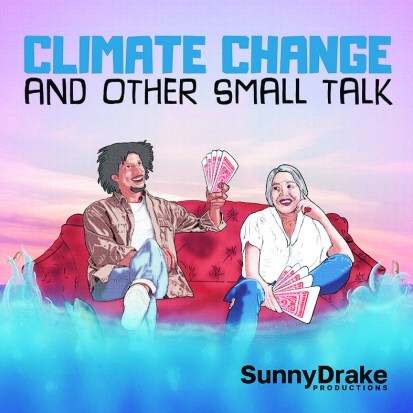
Why humour to handle the catastrophic subject?
My lunch kept getting soggy since I would sob into my sandwich every day about the dire state of the world. So I thought my sandwiches would taste better if I could laugh about it rather than cry. And then I would have more energy for getting involved with climate movements since I wasn’t continually having to make new sandwiches. Does anyone else have this problem?
What was the philosophy of selection for the nine creative teams?
I reached out to theatre teams with skills in creating entertaining stories about serious things. Climate justice was also a guiding principle in our team selection—so most of our playwrights are from communities more heavily impacted by climate change.
When was the release on Spotify and how is it making an impact worldwide?
The podcast was released on World Earth Day last year. We’ve had an incredible response from around the world, won multiple awards and made the Top 10 on Apple podcasts ratings. The response of folks to our calls to action has been great.
Faizal Khan is a freelancer

